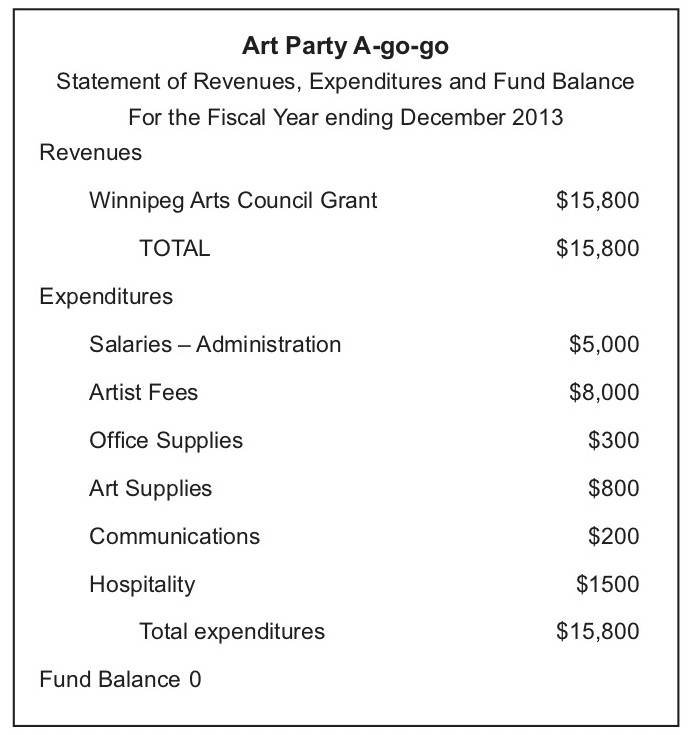Financial Reporting
Most organizations require a financial report at the end of the project.
In general, a financial report needs to show:
- Actual revenues (money that came in)
- Actual expenses (money that was spent)
- Receipts to support both
This information can be shown in a statement of Revenues, Expenditures and Fund Balance.

Remember:
- The revenues and expenditures need to match
. Have the original receipts to back up this report.
What If You Have Expenses but the Grant Hasn’t Come Yet?
This is a very common predicament. First, do not start a project that requires funding without securing funding first.
Secondly, when you are applying for funding, do your research about when the money will come or have a Plan B with your collaborative partner. It is useful to have a window of a month or two before your project start date in case a funding cheque is late. There is nothing like a bounced or late cheque to set a project off poorly. It’s okay to call the organization about the status of payment, just don’t harass them.
What if You Overspend?
Sometimes projects run over budget. When this happens in organizations they can show a deficit or make up the lost money by cutting in other areas. It doesn’t work the same way with community projects, unless you or your collaborative partner are part of an organization that is willing to cover the extra expenses. If the project is running over budget it is wise to deal with it as soon as you can.
- Examine your proposed budget. Is there a way to adjust the budget lines?
- Review your funding application. What can you change or not change?
- Can you adjust the project timeline (for example., end the program earlier)?
- Can you decrease the costs of the final event? Are local organizations willing to donate food or other supplies?
Notes from the Field
I was working on a community project between two community centres. One of the community centres spent the money for my program on other expenses, hoping that a grant they had just applied for would pay back the program fund. They didn’t get the grant. The program ended early with many of the proposed projects never realized. Furthermore, the granting agency and a volunteer lawyer had to negotiate a settlement. While the community centre did not intentionally set out to steal the program money, it still happened. Be sure that if you are getting funding for a project through an existing organization, you negotiate who can access the funds. Be sure to attend all board meetings as well. While your project may be within budget, financial problems in other areas of the organization can affect your project.
